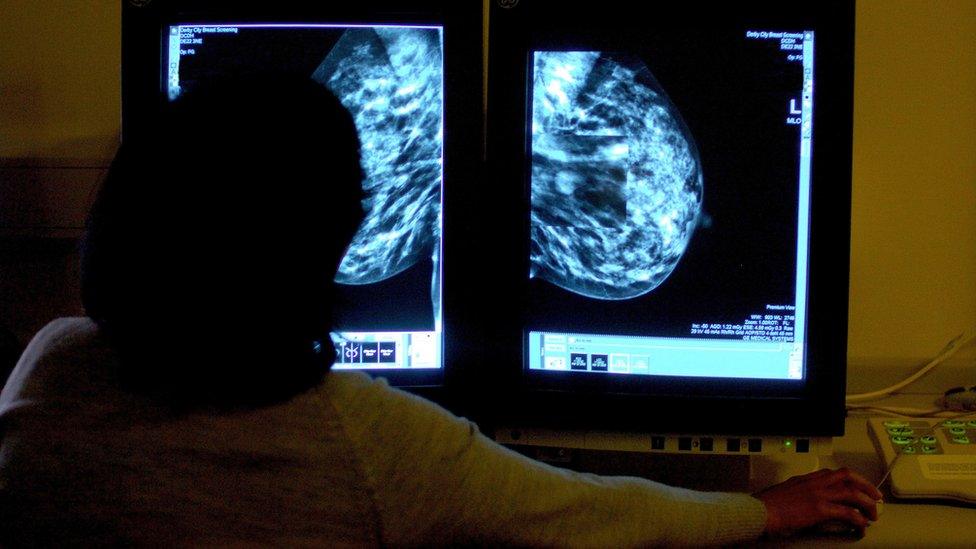Many more women now beating early breast cancer
- Published
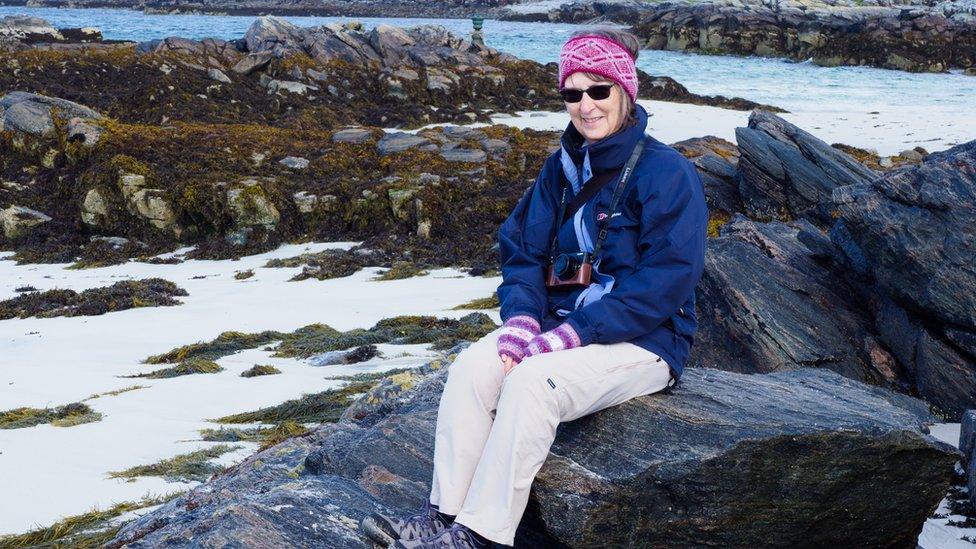
Mairead MacKenzie was diagnosed with breast cancer 20 years ago, aged 48
Most women with early breast cancer now beat the disease thanks to huge improvements in treatments in recent years, a BMJ analysis has found.
Their risk of dying within five years of diagnosis is estimated to be around 5% - down from 14% in the 1990s.
Cancer Research UK says this offers "reassurance" to many women but warns more highly-trained staff are needed to meet rising demand.
A plan for NHS staffing in England has been repeatedly delayed.
Government ministers say this workforce strategy is due shortly.
'Very scared'
Mairead MacKenzie, 69, from Surrey, was diagnosed with breast cancer in 2002, after finding a swelling under one arm.
She remembers feeling "very scared" because she had no idea of her chances of surviving.
"But I knew it had to be bad," she says.
Mairead started chemotherapy treatment, which uses drugs to kill off cancer cells, within days of seeing her GP.
This was followed by a mastectomy (removal of one breast), breast reconstruction and radiotherapy treatment before seven years on the drug tamoxifen to reduce the chances of the cancer coming back.
"It felt like they were throwing the book at me," she says.
Mairead is now involved in a patient-advocate group, external that helps scientists understand patients' experiences.
She is grateful for the care she received - and the gardening, walking and travelling she has been able to do in the intervening years.
"Good, clear communication about prognosis can make a vast difference to a patient's quality of life, and how they can cope with things," Mairead says.
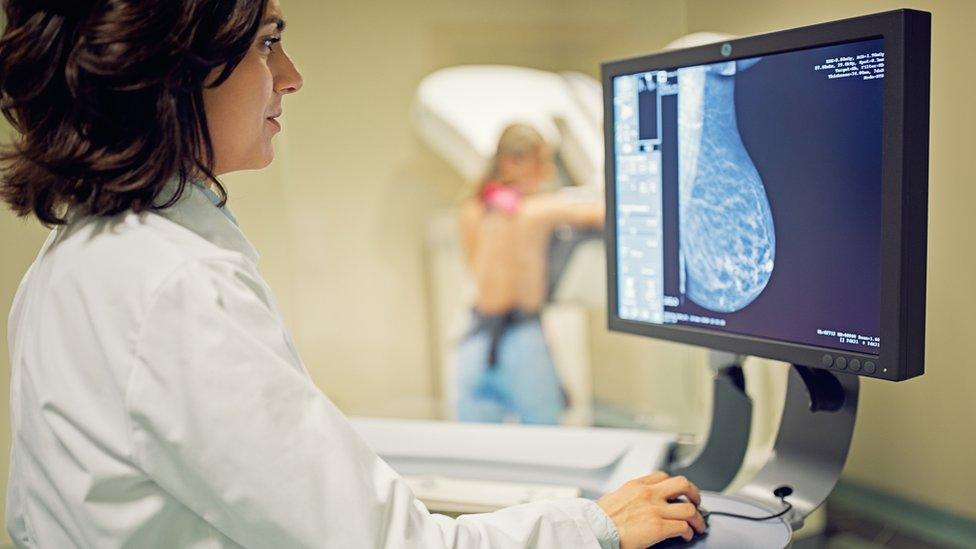
Breast screening looks for cancers that are too small to see or feel - it's offered only to age groups most at risk
The BMJ analysis, external tracked more than half a million women with early, invasive breast cancer - mostly stage one and two - diagnosed in the 1990s, 2000s and between 2010 and 2015.
It found the prognosis for nearly all women "has improved substantially since the 1990s", with most becoming long-term cancer survivors.
And based on those trends, the researchers behind the Oxford University-led study say women diagnosed today also have a much lower risk.
"That's good news - and reassuring for clinicians and patients," oncologist and lead researcher Prof Carolyn Taylor says.
For two-thirds of women diagnosed recently, their five-year risk of death from breast cancer was less than 3%, but for one in 20 women it was 20% or higher.
Prognosis depends on someone's age, type of breast cancer and underlying health, among other factors.
Treatment advances
Surgery cures most breast cancers - but if some disease remains, chemotherapy, radiotherapy and endocrine therapy can reduce the long-term risk of dying.
Prof Taylor points to advances in treatment, including:
more targeted therapies for early breast cancer, such as Herceptin
new treatments, such as hormonal therapies
more precise and effective radiotherapy
Prof Taylor says more women are being screened for the cancer than 20 years ago and there is greater awareness of the symptoms.
In time, research will look at the survival rates of patients diagnosed during the Covid pandemic - but there is no data on this yet.
Cancer Research UK evidence and implementation director Naser Turabi says Covid was "very disruptive" but accepts "we were already on a worsening trend before the pandemic".
The difference now is "we are seeing diagnostic and treatment delays" and "highly fragile services".
"We need more highly trained staff, such as radiologists and oncologists, to cope with increased demand and an ageing population," Mr Turabi adds.
It is a view recently echoed by radiologists who say the NHS is struggling to provide safe and effective care for all cancer patients.
'Progress unravelling'
In England, Scotland and Northern Ireland, cancer treatment should start within 62 days of an urgent referral by a GP.
But only 61% of patients in England are currently starting treatment in that time - against a target of 85% - and in Northern Ireland, just 37%.
The charity Breast Cancer Now says significant progress has been made on breast cancer research over the decades but it is "not a done deal".
Chief executive Baroness Morgan says: "11,500 people a year in the UK die from the disease - and despite the tireless work of NHS staff, we know many women are waiting far too long for a diagnosis and are experiencing anxious delays to their treatment.
"Without urgent action from governments across the UK to get breast cancer services back on track, we risk seeing these decades of progress unravelling."
In rare cases, men can also be diagnosed with breast cancer, external but this study did not look at male trends.
Related topics
- Published9 June 2023
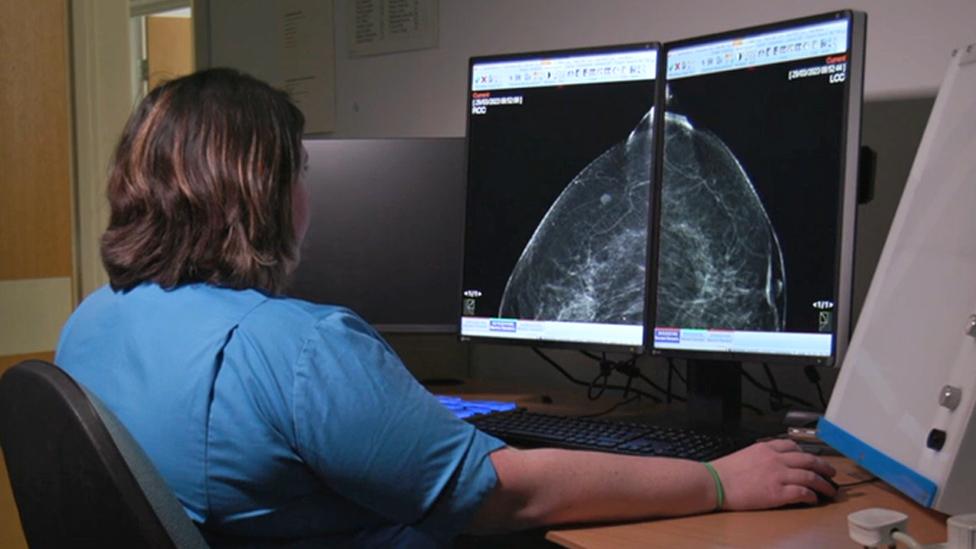
- Published8 June 2023
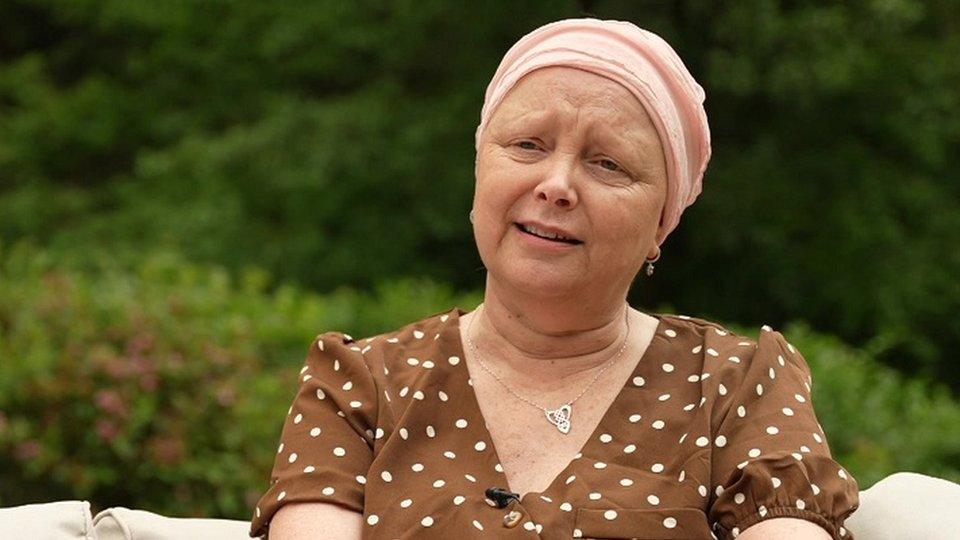
- Published2 June 2023
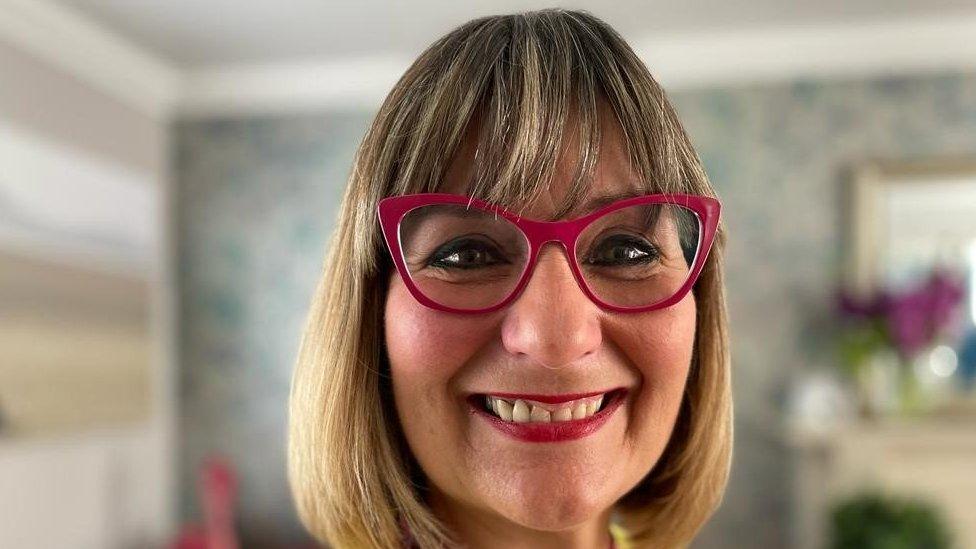
- Published6 April 2023
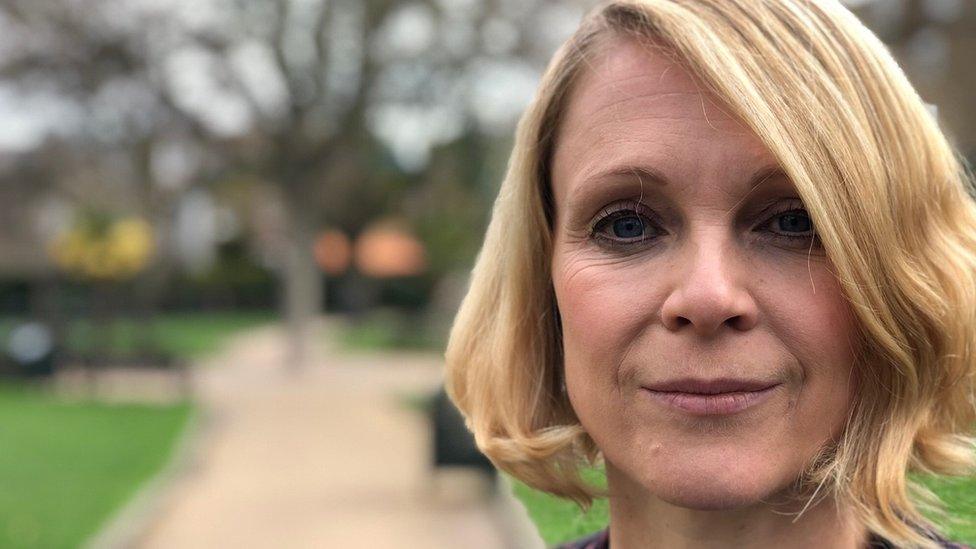
- Published19 February 2023
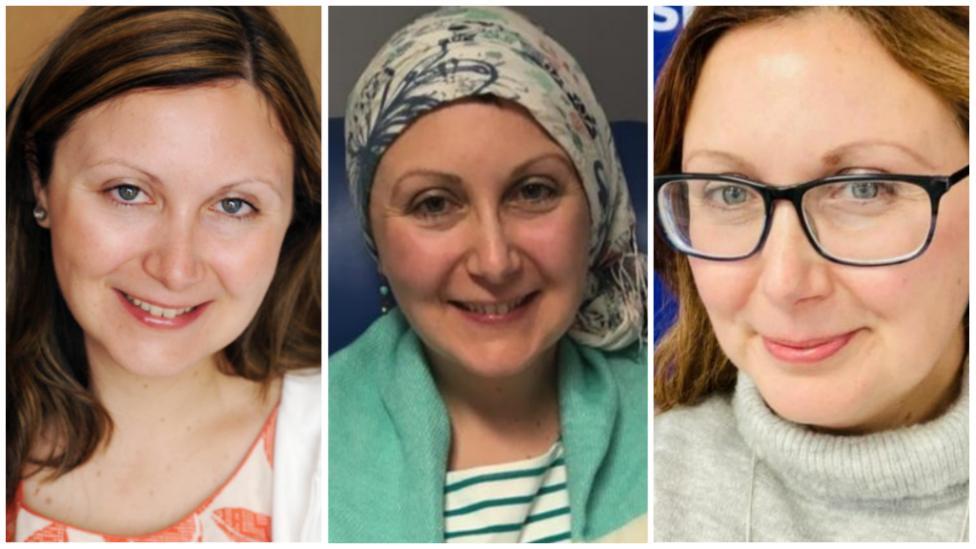
- Published7 March 2023
